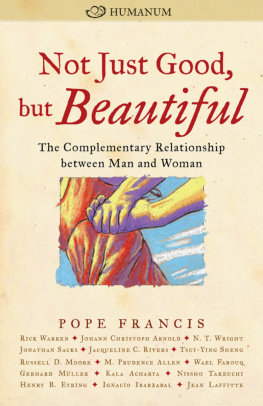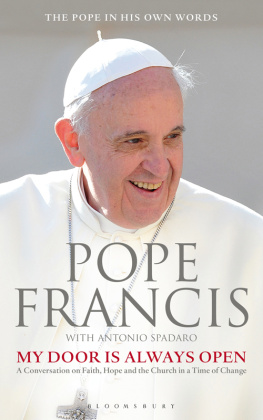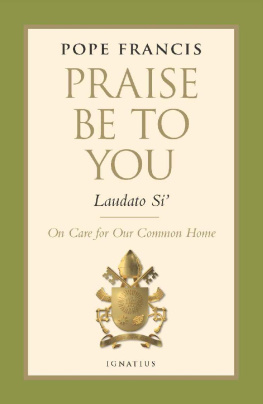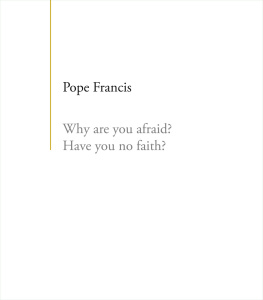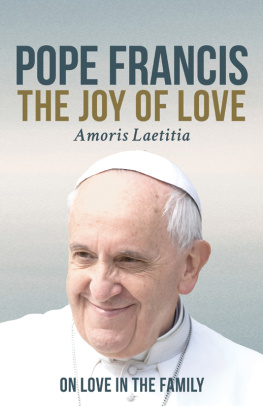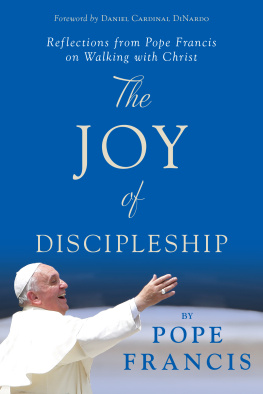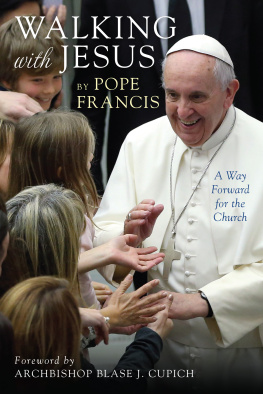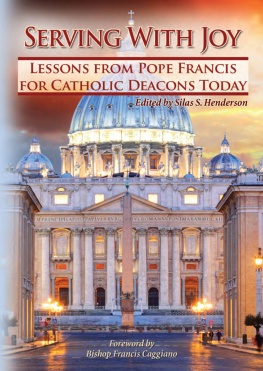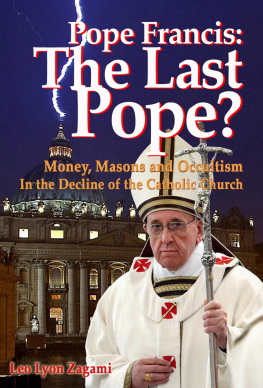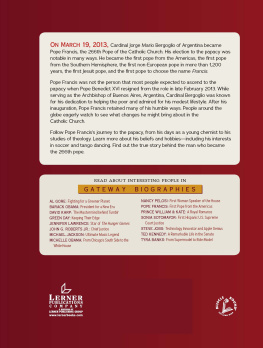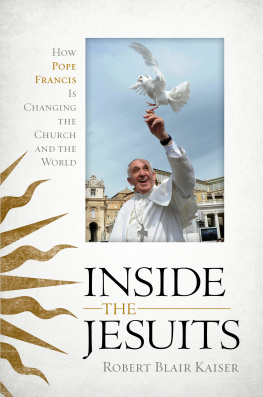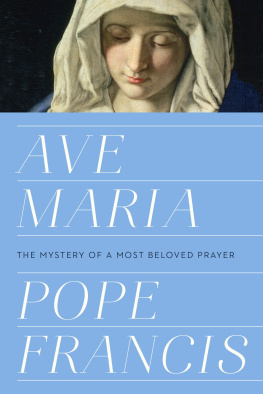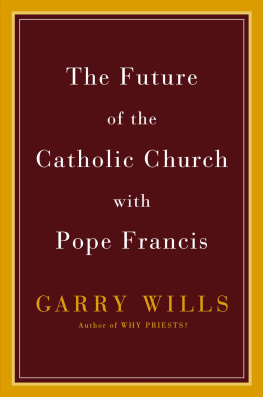Preface
From November 17 through 19, 2014, Rome bore witness to an extraordinary gathering of four hundred scholars and religious leaders from around the world, convening in an international colloquium to discuss the complementarity of man and woman in marriage. Opened by Pope Francis, sponsored by the Congregation for the Doctrine of the Faith, and co-hosted by the Pontifical Council for the Family, the Pontifical Council for Interreligious Dialogue, and the Pontifical Council for the Promotion of Christian Unity, the Humanum colloquium brought religious leaders into direct discussion with scholars, researchers, family counselors, social workers, and community organizers all for the single purpose of reflecting together on the fundamental good of the complementary union of man and woman.
The mere existence of such a broad-based gathering, and the obvious goodwill among the participants, is already an affirmation that the joyful truth of the complementarity of man and woman in marriage is not a sectarian proposition or a belief limited to one or another religious group. Rather, the great religious traditions of the world together recognize that the truth of marriage is something written on the human heart by a loving Creator. Thus this initiative is born of the conviction that the union of husband and wife in marriage offers a vital contribution to the flourishing of spouses, children, communities, and whole societies.
The gathering was called Humanum: An International Colloquium on the Complementarity of Man and Woman. Humanum signifies man and woman together humanity in the image of a loving God, the creator of all life and the origin of human society. As a term, complementarity is sometimes misused and misconstrued to imply the subjugation of one sex to the other. At its core, however, it encompasses the equality of women and men while neither obscuring nor diminishing their differences.
Complementarity entails a reciprocity wherein men and women depend upon each other and learn from each other; it benefits spouses directly while also being open, receptive, and life-giving. Perhaps at this historical moment, when so many other models of relationships are proposed and promoted without sufficient reflection, the common testimony of believers from various traditions on the creative power of man and woman together can be a source of hope and inspiration to people of goodwill everywhere.
The international, ecumenical, and interreligious character of Humanum is particularly helpful in removing the discussion of marriage from the realm of politics and setting it on a firmer and more enlightening foundation. In the colloquium presentations gathered in this volume, the authors draw upon their religious conviction, yes, but also upon philosophy, sociology, psychology, and the biological sciences in order to consider the bodily and spiritual nature of the human person and the intrinsic meaning of marriage. There is also substantial consideration of the needs of the poor, of young people, and of the challenges posed when more privileged nations attempt to impose ideological and political notions about the family onto other nations.
Indeed, the breadth of so many different perspectives on complementarity, taken together, offers eloquent witness to the interrelatedness of man and woman, male and female. At the same time, the different authors highlight varying aspects of the ways the sexes relate in a complementary manner. Some emphasize how each sex takes on some of the others gifts and then expresses them in a way particular to the sex of the recipient. Others highlight the unique way that one sex can draw out the best from the other, and supply the needs of the other in a marvellous synergy that certainly regards procreation and the raising of children, but also permeates every other interaction and activity of the spouses. Following upon these reflections, the colloquium participants affirm that political attempts to redefine the essence of marriage, while neglecting this source of nuptial dynamism, ignore something that is fundamental to the nature of human relationships. Such attempts cannot succeed.
Humanum does not overlook the concrete, pastoral implications of this conversation about marriage. Discussions within the Catholic Church during the recent Synod of Bishops have underscored the importance of new language to describe the nature and genius of marriage and family life, language that might propose the beauty of marriage to a world grown tired of a conversation that focuses only on problems in relationships, divorce, declining marriage rates, and the like. Relatively little energy has been devoted to a robust discussion about the creative power of the complementary union, or dynamic strategies to support marriage and families. The fourteen religious traditions represented by the Humanum speakers offer proposals drawn from the wisdom of those cultures and traditions about marriage and the intrinsic value of parenting and community formation. The texts collected in this volume offer a rich treasure of new language and insights into the family at its starting point: the husband and wife. They are intelligent and moving, beautiful and rational at one and the same time.
This collection of presentations is offered as a contribution to a discussion that must continue. By considering carefully what marriage involves at its core the complementary relationship of man and woman we contribute to the development of what Pope Francis calls a new human ecology, one which affirms equality in dignity and respects the diversity of women and men. The colloquium was indeed a unique occasion for discussion, cooperation, and common witness on a matter of fundamental human importance. But one such gathering can never be the final word. With this volume, I invite your participation in continuing the conversation of Humanum so that this new human ecology may flourish.
Gerhard Cardinal Mller
Prefect of the Congregation for the Doctrine of the Faith
The Vatican, March 30, 2015
To reflect upon complementarity is nothing less than to ponder the dynamic harmonies at the heart of all Creation.... It is not just a good thing, but it is also beautiful.
Pope Francis
POPE FRANCIS
Not Just Good, but Beautiful
I would like to begin by sharing with you a reflection on the title of your colloquium. Complementarity is a precious word, with multiple meanings. It can refer to situations where one of two things adds to, completes, or fulfills a lack in the other. But complementarity is much more than that. Christians find its deepest meaning in the First Letter to the Corinthians, where Saint Paul tells us that the Spirit has endowed each of us with different gifts so that just as the human bodys members work together for the good of the whole everyones gifts can work together for the benefit of each (1 Cor. 12). To reflect upon complementarity is nothing less than to ponder the dynamic harmonies at the heart of all creation. This is the key word, harmony. All complementarities were made by our Creator, because the Holy Spirit, who is the Author of harmony, achieves this harmony.
It is fitting that you have gathered here in this international colloquium to explore the complementarity of man and woman. This complementarity is at the root of marriage and family, which is the first school where we learn to appreciate our own and others gifts, and where we begin to acquire the arts of living together. For most of us, the family provides the principal place where we can begin to breathe values and ideals, as well to realize our full capacity for virtue and charity. At the same time, as we know, families are places of tensions: between egoism and altruism, reason and passion, immediate desires and long-range goals. But families also provide frameworks for resolving such tensions. This is important. When we speak of complementarity between man and woman in this context, let us not confuse that term with the simplistic idea that all the roles and relations of the two sexes are fixed in a single, static pattern. Complementarity will take many forms as each man and woman brings his or her distinctive contributions to their marriage and to the formation of their children his or her personal richness, personal charisma. Complementarity becomes a great wealth. It is not just a good thing but it is also beautiful.
Next page
